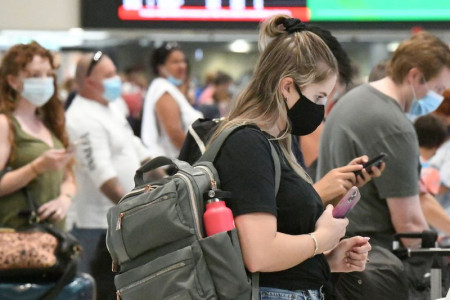“Our mission in Canberra had done a thorough fact-finding effort to seek clarity on the reasons for the update. It is good to note that there will be no negative developments as we initially thought. Based on their justification and explanation, the update is actually in favour of Sri Lanka although the wordings implied a different picture,” Sri Lanka Tourism Development Authority (SLDTA) Chairman Priantha Fernando told Mirror Business.
Following instructions from the Ministry of Foreign Affairs, the Sri Lankan High Commission in Canberra met with the Indian Ocean & South Asia Maritime Branch of the Department of Foreign Affairs & Trade Assistant Secretary this week seeking justification for the travel update.
A communication from the Sri Lankan mission to the Ministry of Foreign Affairs in Colombo has conveyed that Australia’s travel advisory update dated August 10, 2023, had replaced the term ‘risk of terrorism’ with ‘risk of security,’ representing a favourable progression for the nation.
The level of advice (yellow colour) has not been changed since October 2022 update, and, it is similar to other South Asian countries such as India, Bangladesh etc., it was pointed out.
In fact, in the case of India and Bangladesh, specific regions are highlighted in orange to denote a higher travel risk, whereas for Sri Lanka, the entirety of the country is designated with a yellow indication.
Regarding the references to the Easter attack in 2019, DFAT had justified its inclusion by explaining that it is customary to make references to significant past events in travel advisories, regardless of the time elapsed since those events occurred.
DFAT had further pointed out that both Indonesia and Thailand, the most favoured tourist destinations for Australians, have warnings under the safety/security section, unlike Sri Lanka. Both advisories refer to possible ongoing terrorism threats in Indonesia and in Thailand.
Indonesian travel advisory employs stronger language, urging travellers to “reconsider the need to travel” and “avoid non-essential travel” to specific regions within Indonesia. These advisories are more assertive compared to those issued on Sri Lanka, it was pointed out.
Meanwhile, Australian High Commissioner to Sri Lanka Paul Stephen had also confirmed to the Sri Lankan mission that the travel advisory on the island nation is consistent with the language used by the tourism advisories issued by the UK, France, and Germany.
The latest Australian Travel Advisory on Sri Lanka has also toned down the references to violent crimes and female travellers, the Mission said in its update.
TV


